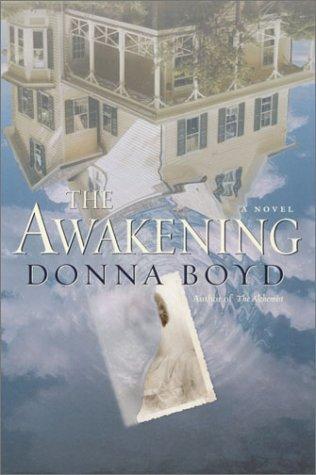
Donna Boyd’s novel The Awakening starts off promisingly enough. A woman wakes up, confused and disoriented. It’s clear that something traumatic has happened to her, but she has no recollection of what it is. Then we meet Paul Mason, his wife Penny and their daughter, Elsie. Paul’s a famous writer who hasn’t published anything new in over six years; Penny is a busy surgeon; Elsie is their troubled thirteen-year-old daughter. Paul and Penny’s marriage is hobbling along after Paul’s infidelity; Elsie is apparently in therapy to recover from some traumatic event.
The Awakening is a ghost story. Apparently, though, writing a ghost story wasn’t sufficient for Boyd, so she’s thrown in teen angst, suicide pacts, buried family secrets, cancer, and the whole notion of life after death. All the bits and pieces are meant to add up and when the ghost finally comes to terms with her death (and is ultimately reuinited with her true family, although we don’t actually see this happen ), the miracle of her existence propels the Masons down a road towards reconciliation and emotional healing.
Should you expect more than entertainment when you read a book like this? Not necessarily, I guess. There was something that just didn’t add up though…or maybe it’s that things did add up, just the teensiest bit too easily. So many big topics, Paul’s infidelity, for example or the ways that he and Penny had drifted apart or what happened to Elsie which had caused so much stress in the family, all of it is explained or resolved in the book’s final pages.
The Awakening turned out to be one of the tamest ghost stories I’ve ever read and an even less compelling family drama.

You might try her Devoncroix series if you’re into the supernatural. In my opinion, she wrote two truly fantastic werewolf stories, and a brief e-mail to her assured me the third would one day come out.
Her writing of their saga has been compared quite a bit to early Anne Rice, and I definitely see the similarity when it comes to rich descriptions about setting, emotions, and dialogue.